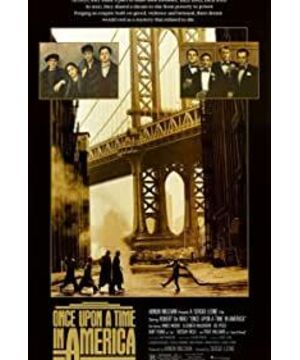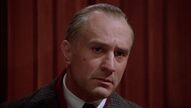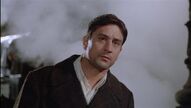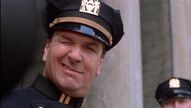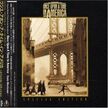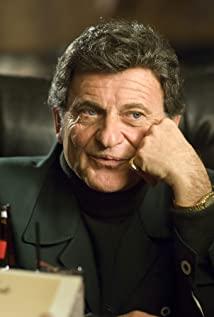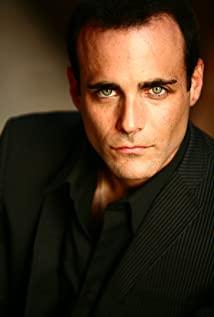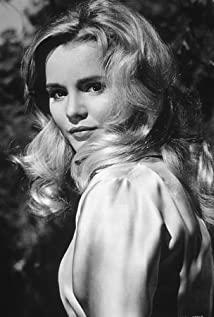It's a movie with a deep proposition, about love, about friendship, about the American dream of a generation. The film ends with the mysterious smile of the noodles. For a long time, it has become a mystery in the hearts of many moviegoers, so everyone analyzed it from different levels to express their love and nostalgia for the film. The results vary. And foot. Indeed, the middle-aged laughter breaks the chronological structure and is edited at the end of the film, and it does have its unique connotations. In this regard, I think his laughter covers three meanings from the shallower to the deeper: First, the intoxication of opium. Apparently, the noodles laughed after lying down and smoking opium, which also happened just after he learned of his brother's death. When he thought that whistleblowing to the police would save his brother who was dazzled by victory, he unexpectedly exchanged for his brother's death. His heart was filled with complex emotions such as guilt and self-blame, so he went to the opium den to seek relief. With that smile. He hoped to use opium for self-resolving, so as to dilute the self-blame and grief in reality, so when his body and mind fell into a state of erratic confusion, all the turmoil in the outside world disappeared. A contented laugh with a heart freed. Second, the feelings of life. Under the heavy theme, ending with a smile is indeed a little thin, but it is in such a large environment that this faint smile has a figurative symbolic meaning, like a bright color in the dark, with helplessness , there is contemplation, but more emotion. The presentation of his thoughts and results made him a tragic laughing stock, so this seemingly "mixed" smile was a mockery of his own stupidity to inform and kill his brother, and at the same time, it was also a mockery of the fickleness of life and the mischief of fate. A feeling. Under the catalysis of opium blurred and empty, he recalled the sad and happy days, when his brother was still there, so he put together such a smooth and natural smile in the vicissitudes of life, filtering out the despair and fear of reality , is full of endless sorrow and nostalgia in life. Third, a mockery of the American Dream. Once Upon a Time in America presents two themes. The surface theme is friendship and love, the friendship between noodles and Max, the love between noodles and deborah; the deep theme is the looming American dream. The film sublimates the deep theme through the display of the superficial theme, showing the broken state of the American dream of a generation. Director Leone's notes once explained profoundly: America is a mixture of reality and fantasy. The title page of "Peking Man in New York" also reads, "If you love someone, send her to New York, because it is heaven; if you hate someone, send her to New York, because it is hell." America, yes A place where reality and fantasy are intertwined, allowing you to walk in the clouds or throwing you into a hell of ice. On the one hand, there is freedom and power in a high position, and on the other hand, there is morbidity and depression with an empty body. The American Dream was to achieve success through one's own hard work, and it was everyone's belief at that time. This dream is more deeply concentrated in Max and Deborah. The mixture of reality and fantasy alternates, contradicting each other in the film, and binary opposition in the reality of America, making them who live and pursue passionately seem to have it but lose it. In the film, Max's ambitions are everywhere. He said in the team that the commander showed his strong desire for control and self-awareness, and then he "smartly" cheated his death to escape and stepped into the political world to wash his whites. Hard work" finally entered the upper class and successfully fulfilled his American dream. But when he is in heaven, it is like falling into an abyss. He is deeply aware of his sin, so at the last moment of despair, he only hopes that his last brother will end his life, but he eventually lost that deep brother. Friendship, so finally repentantly chose to join the garbage truck for self-termination. His life seems to be a success but it is a failure. He has lost his conscience and lost the most precious friendship. He is just a corpse without a soul. His life has been alienated by money and victory, and it is distorted and abnormal. And what about Deborah? She is a recipient and practitioner of mainstream social values. She has had a "star dream" since she was a child, and is also eager to realize that beautiful dream through personal struggle. So, she practiced dancing diligently in the bakery, studied French hard, and even became the lover of the "Minister Bailey" that she once hated. She did it desperately, she became a well-known Broadway actor, but she was very confused and lonely, because it didn't seem to be similar to the glamorous she pursued. How arrogant a person used to be, but now she is reduced to the point of a politician's lover, especially after meeting the noodles after the wind and frost, the decadence and sadness in her heart are like wrinkles crawling on the corner of her eyes, even under thick makeup. Hidden, finally exposed to the eyes of the once loved noodles. Apparently, Noodles is very different from the two. He always retains his free and easy street habits. He only longs for a simple life of stealing and robbing with his brothers without being oppressed by others. He can climb the clouds but he does not forget to smell the fireworks on the ground. He always acts in a free and free way Be yourself, treat the goddess and brothers with the most genuine state and affection. He can give up the big position for the sake of brotherhood, because the shouting of the brothers can withdraw from the love and pity of the goddess, and he can even stab someone to death and go to jail for the sake of little Dominic... But he still does not understand that his pursuit is completely different from theirs. Differently, when his idea of unwilling to make friends with the powerful and unbearable to join forces with politicians became more and more intense, it was when he went against them and had a qualitative change. He always stood outside the circle of the American dream, as if he had become a part of the collective pursuit of the American dream. rebels and outsiders. What a tragic and helpless experience it seems to have escaped for 35 years, but in comparison, he is the most sincere and happy person among them. He has gained, he has lost, but he has not changed. So the last laugh is a mockery of the generation that pursued the American dream, laughing at the fact that they have exhausted their pursuits throughout their lives, but often fail to get what they really want. Noodles' last smile adds a poetic touch to the film's rough gangster realistic style, not so much the charm of the blank space as the hidden wisdom. How should such a heavy and painful film end? Taking teenage melancholy? With the pain of middle age? Take old sentimental? Obviously, ending with a light smile just blurs the boundary between reality and fantasy. It fits with the deep theme of the film, which seems abrupt but tactful. So the sudden smile happens to be a happy ending for the whole film and the whole life. Noodles' last smile adds a poetic touch to the film's rough gangster realistic style, not so much the charm of the blank space as the hidden wisdom. How should such a heavy and painful film end? Taking teenage melancholy? With the pain of middle age? Take old sentimental? Obviously, ending with a light smile just blurs the boundary between reality and fantasy. It fits with the deep theme of the film, which seems abrupt but tactful. So the sudden smile happens to be a happy ending for the whole film and the whole life. Noodles' last smile adds a poetic touch to the film's rough gangster realistic style, not so much the charm of the blank space as the hidden wisdom. How should such a heavy and painful film end? Taking teenage melancholy? With the pain of middle age? Take old sentimental? Obviously, ending with a light smile just blurs the boundary between reality and fantasy. It fits with the deep theme of the film, which seems abrupt but tactful. So the sudden smile happens to be a happy ending for the whole film and the whole life. Noodles' last smile adds a poetic touch to the film's rough gangster realistic style, not so much the charm of the blank space as the hidden wisdom. How should such a heavy and painful film end? Taking teenage melancholy? With the pain of middle age? Take old sentimental? Obviously, ending with a light smile just blurs the boundary between reality and fantasy. It fits with the deep theme of the film, which seems abrupt but tactful. So the sudden smile happens to be a happy ending for the whole film and the whole life. Noodles' last smile adds a poetic touch to the film's rough gangster realistic style, not so much the charm of the blank space as the hidden wisdom. How should such a heavy and painful film end? Taking teenage melancholy? With the pain of middle age? Take old sentimental? Obviously, ending with a light smile just blurs the boundary between reality and fantasy. It fits with the deep theme of the film, which seems abrupt but tactful. So the sudden smile happens to be a happy ending for the whole film and the whole life.
View more about Once Upon a Time in America reviews


